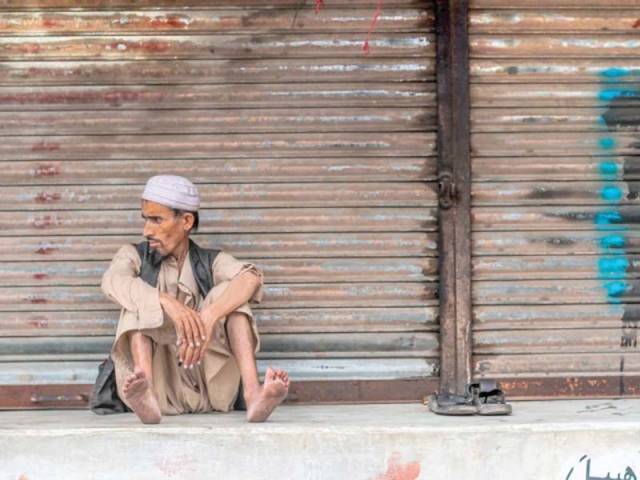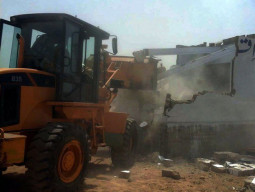
The poor have as much claim on Karachi as the middle or the upper classes, said Aquila Ismail, sister of late Perween Rehman, the former director of the Orangi Pilot Project.
More than 60% of the population resides in informal settlements in Karachi, she revealed.
She was speaking at an event titled 'Reclaiming Public Spaces' held at The Second Floor on Saturday. This was the first session of a series of talks organised by The Karachi Biennale Council. The First Karachi Biennale will be held in 2017.

Rehman believed that development did not require evicting people to construct big buildings or pavements, said the sister of the slain activist and social worker. Development must also ensure life, liberty and happiness for the poor, she added.
Around 50,000 apartments are lying vacant in the city. Yet, the poor have no space and end up settling in katchi abadis or other illegal settlements. Such informal settlements are not possible without the approval of the government, including Karachi Development Authority, the police and Board of Revenue, remarked Ismail.
Building a hotel or a hostel block is not development. Development is for the people and includes provision of clean drinking water, shelter and food security, she said.
"When have the planners or the architectures catered to the needs of the majority of the people?" Ismail asked. They do not even take into account the damage done to the environment. The city planners have let down the people, she claimed.
When reclaiming public spaces, you need to go and ask the people who live there regarding the changes they want in the area. "You have to engage with people more than the space," she added.
Owning the city
We may be a poor country but there isn't anything poor about our minds, said architect Shahid Abdulla.
Karachi is very fortunate as it has many dedicated people working to make it better, within their resources and framework, remarked architect Hasnain Lotia.
Speaking about the renovation of Eduljee Dinshaw Road, Abdulla said that upon a friend's request he visited the Karachi Port Trust (KPT). He met a gentleman there, who asked him to transform the road in front of the Customs House and KPT.
Reclaiming the street was a tremendous task, he said. "There were drug addicts out there, along with trucks, containers, cobblers, all kinds of encroachments."
Since Abdulla lacked the expertise to restore the street to its original form, he brought another architect, Danish Zuby, on board. Zuby specialises in the décor and architecture during the British Raj.
The entire drainage system and storm water drainage was completely choked, he claimed. "There was history under that road," he said, adding that it took eight months alone to read it out.
During the renovation, traffic was barred to enter the street. So, it was decided to turn the street into a pedestrian zone, he claimed. At night, half of Kharadar throngs the place, he revealed.
Published in The Express Tribune, March 28th, 2016.

















COMMENTS
Comments are moderated and generally will be posted if they are on-topic and not abusive.
For more information, please see our Comments FAQ